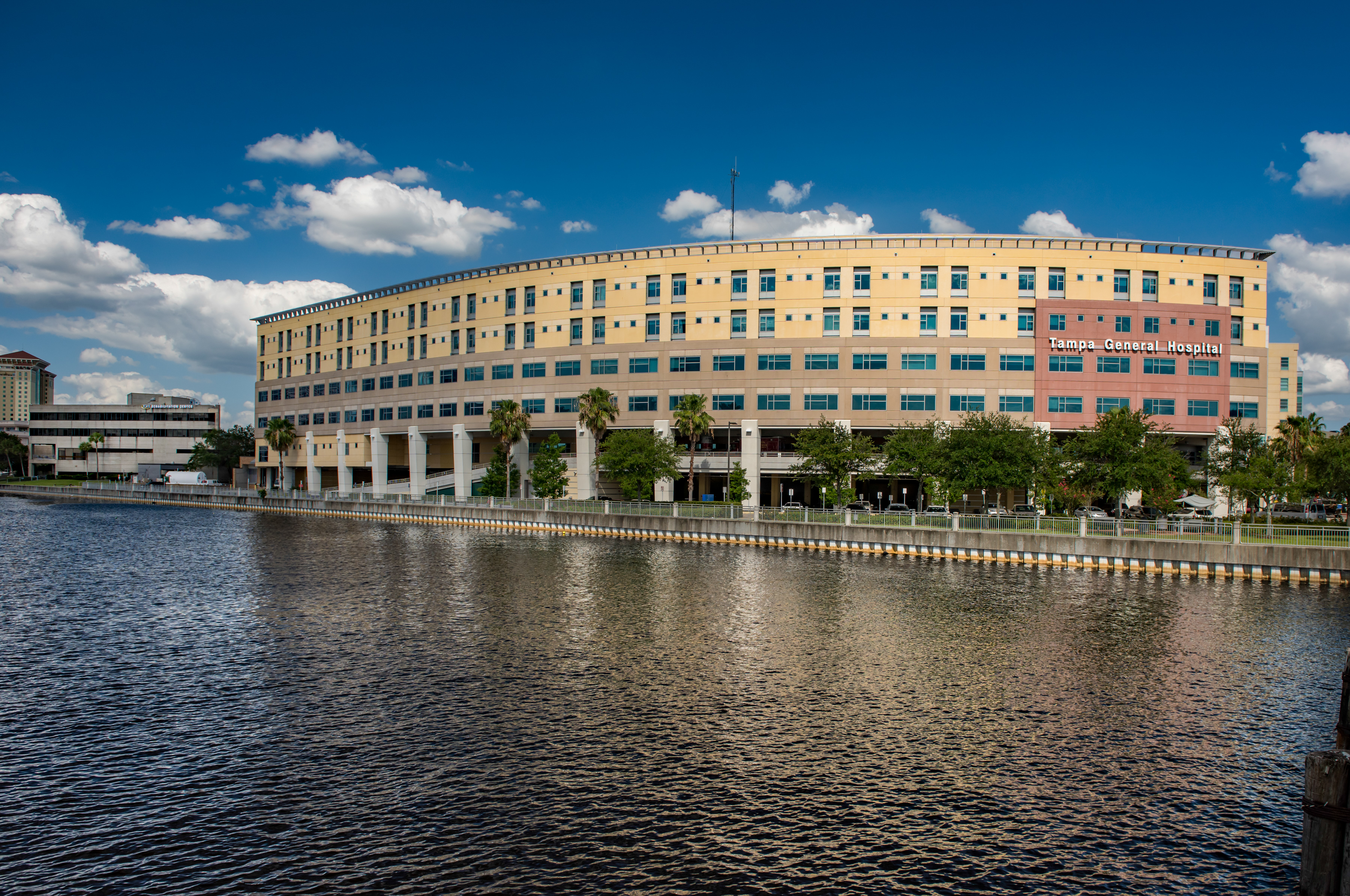Referral Center for the Most Complex Hernia Cases

Tampa General Hospital’s Hernia Center offers the newest approaches to open laparoscopic and robotic surgery for all types of hernias, from the simplest to the most complex. Protocol-driven and evidence-based, the Center participates in the American Hernia Society’s Quality Collaborative to insure the highest quality of care.
High Surgical Volumes
- 800 hernia cases
- 250 robotic surgeries
- 300 laparoscopic surgeries
- 250 open surgeries
Multidisciplinary Approach to Hernia Repair
A multidisciplinary approach to groin and abdominal wall hernia repairs for both adult and pediatric patients makes TGH a referral center for abdominal wall reconstruction, hernia repairs, and revisional surgeries. Hernia Center surgeons work with urologists, colorectal surgeons, bariatric surgeons, and a board-certified obesity medicine physician to optimize hernia outcomes with the least amount of complications and recurrence.
Access to Minimally Invasive Techniques
Tampa General surgeons perform 80-85% of all hernia surgeries using minimally invasive techniques, including robotic surgery which has revolutionized hernia surgery. Unlike using a laparoscope, robotic techniques allow surgeons to perform larger, more complex hernia repairs. It also allows patients to be released the same day – less than 5% of patients stay overnight.
Referral Center for the Most Complex Cases
Where other centers may turn away difficult cases, Tampa General’s Hernia Center welcomes patients with complex cases:
Multi-Specialty, Robotic Approach to Recurrent Hernia
A 47-year-old patient came to TGH’s Hernia Center with a large, recurrent hernia resulting from a left anterior hemipelvectomy to treat Ewing’s sarcoma. The hernia had been repaired at another hospital but had extended into her labia, preventing her from emptying her bladder and resulting in severe UTIs. The other hospital planned to use an open approach to perform a hernia repair, bladder suspension, and a total pelvis reconstruction.
Instead, TGH hernia surgeons and urologists used robotic techniques for the patient’s hernia repair and bladder suspension using four 8mm incisions. The patients is two years post-surgery with no evidence of recurrence.
Multi-Specialty, Robotic Approach to Recurrent Hernia
A 65-year-old patient with a giant umbilical hernia that protruded below her knees had been turned away from several centers because of her obesity and cirrhosis. Her hernia was difficult because it enveloped more than 50% of her small and large bowel. The chance of it eviscerating at home was imminent.
TGH surgeons performed a successful open repair and referred her to the Bariatric Clinic to help her lose weight and minimize the chance of recurrence. To date, she has had no recurrence, she has lost 40 pounds, and she reports feeling “the best she has felt in as long as she can remember.”
Robotic Repair of Post-Surgical Abdominal Hernias
A 41-year-old patient who had six previous major abdominal surgeries presented with two large recurrent ventral hernias – one in the RLQ and the other in the epigastrium. Repair attempts at other hospitals left him with anterior component and posterior rectus releases that limited further options.
After weighing the benefits of robotic, hybrid, and open repairs, TGH surgeons elected to pursue robotic repair of both hernias with unilateral component separation using three 8mm incisions. At present, he has no evidence of recurrence and is back to exercising with zero pain.
